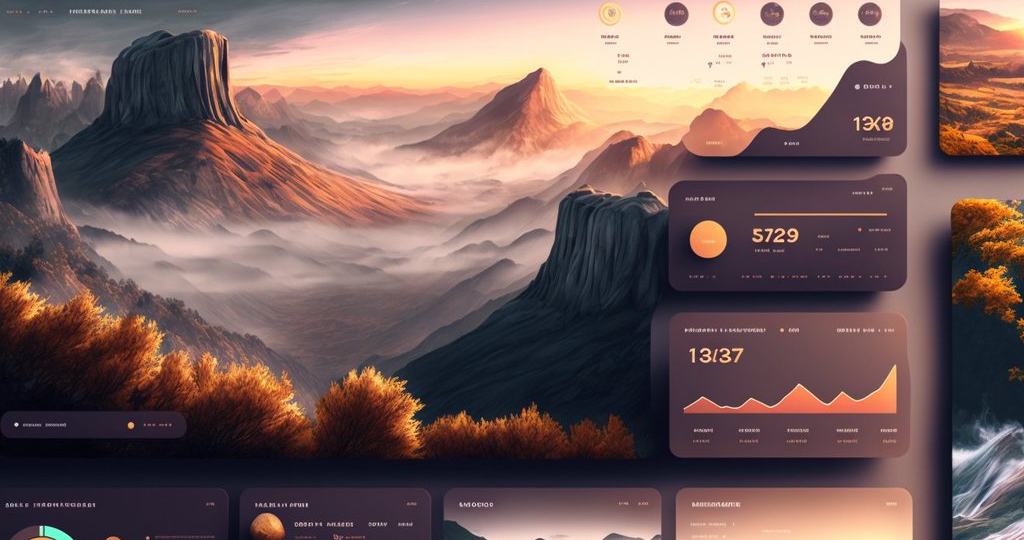Have you ever been frustrated by a slow-loading mobile app or the need to free up storage space for yet another download? Progressive Web Apps (PWAs) might be the answer you've been waiting for. They offer the best of both worlds: the functionality and user experience of native apps, combined with the accessibility and reach of the web. In this article, we'll learn their benefits, how they work, and real-world examples of companies using their power to transform mobile engagement.
What are Progressive Web Apps (PWAs)?
Progressive Web Apps (PWAs) are essentially web applications that offer a user experience similar to that of native mobile apps. They're built using web technologies but provide features typically associated with apps you'd download from an app store.
Here's the gist: PWAs can run on various devices and platforms, just like regular websites, all thanks to their single codebase. But here's where they stand out: once you install a PWA on your device, it behaves much like any other app you'd download, even working offline and in the background seamlessly.
Moreover, PWAs can tap into your device's capabilities, like sending you notifications or accessing your camera, which enhances the user experience and makes them feel like a natural part of your device.
In summary, Progressive Web Apps blend the accessibility of web-based technology with the user-friendly features of native mobile apps, offering a versatile and engaging experience for users across different platforms. Progressive web apps for business make use of these capabilities to provide cost-effective solutions that cater to the needs of businesses of all sizes.
Benefits of PWAs
1- Streamlined Development: PWAs streamline the app development process, saving time and resources. Developers can use existing web code, cutting down on development cycles and ensuring quicker launches across various platforms.
2- User Engagement with Push Notifications: PWAs keep users engaged with push notifications, prompting them to revisit the app. These notifications are customizable, delivering timely updates and promotions directly to users' devices.
3- Cost-Effectiveness: Building progressive web apps for business is cost-effective, making them accessible to businesses of all sizes. With development costs starting as low as $5,000, PWAs offer a budget-friendly alternative to traditional apps.
4- Native App-like Experience: PWAs provide users with a seamless experience similar to native apps. They offer smooth animations, responsive layouts, and easy access without the need for downloads or installations.
5- Swift Loading Times: PWAs load quickly, providing users with instant access to content. This speed enhances user experience and satisfaction, setting PWAs apart from traditional web apps.
6- SEO-Friendly Architecture: PWAs are designed to be SEO-friendly, boosting their visibility and discoverability online. With responsive design and fast loading times, PWAs rank higher in search engine results.
7- Superior User Experience: PWAs offer a superior user experience, combining the best features of web and mobile apps. They are intuitive, fast, and frictionless, keeping users engaged and satisfied.
8- Optimized Resource Utilization: PWAs are lightweight, conserving device storage space and speeding up installation processes. Users can add PWAs to their home screens effortlessly, enhancing accessibility.
9- Instant Updates: PWAs update instantly, ensuring users always have access to the latest features and improvements. This seamless update process minimizes disruptions and keeps users engaged.
10- Effortless Installation: Installing PWAs is simple and intuitive, removing barriers to app adoption. Users can access PWAs directly through web browsers, expanding their reach and accessibility.
11- Offline Functionality: PWAs work offline or in low network conditions, ensuring continuous access to content. This functionality is crucial for users in remote areas or with limited connectivity, enhancing user satisfaction and loyalty.
Examples of PWAs
Progressive web apps, often referred to as PWAs, have been making waves in recent years. And it's no wonder why they've captured so much attention. These dynamic applications offer brands a unique opportunity to leave a lasting impression on consumers, engage with a broader audience, and deliver content that's tailored for mobile devices.
Starbucks:
Progressive Web Apps (PWAs) are modern web applications that blend the best of websites and mobile apps. A great example is Starbucks' online ordering system.
Starbucks' PWA lets customers order, check the menu, and do more without needing to download a separate app. One big plus is that it works even without an internet connection. So, even if you're offline, you can still browse and add items to your cart. Once you're back online, you can finish your order without a hitch.
PWAs like Starbucks' are also super fast. This means you can quickly place orders, perfect for those times when you're in a rush. Plus, they're smaller in size compared to regular apps, so they won't take up too much space on your phone.
Overall, Starbucks' use of a PWA shows how businesses can use this technology to make online experiences better for customers.
Tinder:
When we talk about progressive web apps (PWAs), it's helpful to look at real-life examples to understand their impact. One standout case is Tinder, the popular dating app with 75 million monthly users. Tinder recognized the need for a lighter version of their app, especially considering its hefty size of around 48 megabytes on Android.
So, they introduced Tinder Online, a PWA version of their app. This move was smart because it allowed users to access Tinder via the web without having to install the app, saving valuable smartphone memory.
What's impressive about Tinder Online is that it gives users a similar experience to the native app, but without needing a download. This was made possible by using smart technology tricks like code-splitting, lazy loading, and service workers, which made the web version faster and more efficient.
The results speak for themselves: load times dropped from nearly 12 seconds to just 4.6 seconds, thanks to the smaller size of the PWA. Plus, users were more active on the web version, especially when it came to editing their profiles.
In summary, Tinder's adoption of progressive web app technology is a great example of how it can improve user experience. By offering the convenience of a web app with the functionality of a native one, Tinder Online shows the exciting potential of PWAs in making digital interactions smoother and more enjoyable.
Uber:
Progressive Web Apps (PWAs) are the future of web technology, combining the best aspects of websites and mobile apps. Let's take a look at Uber as an example of how PWAs are changing the game.
Uber saw the potential in PWAs to reach more people, so they redesigned their website as a PWA. This move allowed Uber to offer a smooth booking experience, even on slow networks and older devices.
The beauty of Uber's PWA is its ability to work well on 3G or even 2G networks. It's perfect for people with limited internet access or older phones. Plus, it's quick to download because it's small in size, reducing the chances of people leaving the site before it's even loaded.
By embracing PWAs, Uber shows how businesses can improve accessibility and user experience. It's a smart move that sets the standard for others to follow.
MakeMyTrip
Progressive Web Apps (PWAs) are a modern web development approach that combines the best of websites and mobile apps. They offer users a seamless experience directly through web browsers, without the need for downloading separate applications.
An excellent example of a PWA is MakeMyTrip, a popular online travel agency in India. With eight million monthly visits, MakeMyTrip faced challenges serving users with various devices, including older smartphones with limited data and connectivity.
To improve user experience and address high costs and bounce rates, MakeMyTrip adopted PWA technology. The results were impressive: a significant threefold increase in conversion rates, a notable 38% decrease in page load times, and a remarkable 160% increase in shopping sessions.
Progressive Web Apps represent the future of web development, offering top-notch performance and engagement while being accessible across different devices and network conditions.
Progressive Web Apps (PWAs) are modern web applications that offer users a seamless and efficient experience similar to native mobile apps, but without the need for downloads or installations. They combine the best of web and app technologies to deliver fast, reliable, and engaging experiences directly through web browsers.
One standout example of a successful PWA is Pinterest. Initially struggling with a clunky mobile app, Pinterest revamped its platform using PWA technology. The result? A smoother and more user-friendly interface that perfectly suits the preferences of its audience.
Pinterest's PWA allows users to easily explore and interact with content across different devices, without any hassles. This approach not only improves user satisfaction but also boosts revenue, as users spend more time on the platform.
The success of Pinterest's PWA illustrates the importance of embracing modern web technologies to enhance user experiences. In simple terms, PWAs like Pinterest are paving the way for a more seamless and enjoyable digital experience, where the lines between web and app functionalities are blurred.
Conclusion
Progressive web apps (PWAs) are becoming increasingly popular across various industries as they offer a modern solution for online businesses. These apps are designed to be fast, user-friendly, and provide an excellent experience for mobile users, ultimately driving up conversion rates.
While PWAs are gaining traction, they are still relatively new, which means developers face challenges in optimizing them for speed and performance. Some companies have initially adopted PWAs but later shifted to other approaches like hybrid apps due to these challenges. However, despite these hurdles, PWAs remain a valuable tool for business growth in 2024 and beyond, offering opportunities to enhance user engagement and online presence.
At Way2Smile Solutions, we offer PWAs development solutions customized to the unique needs of businesses worldwide. As a leading web development company in the Dubai,UAE, our team combines expertise with innovation to craft PWAs that elevate user experiences and propel businesses towards success.







